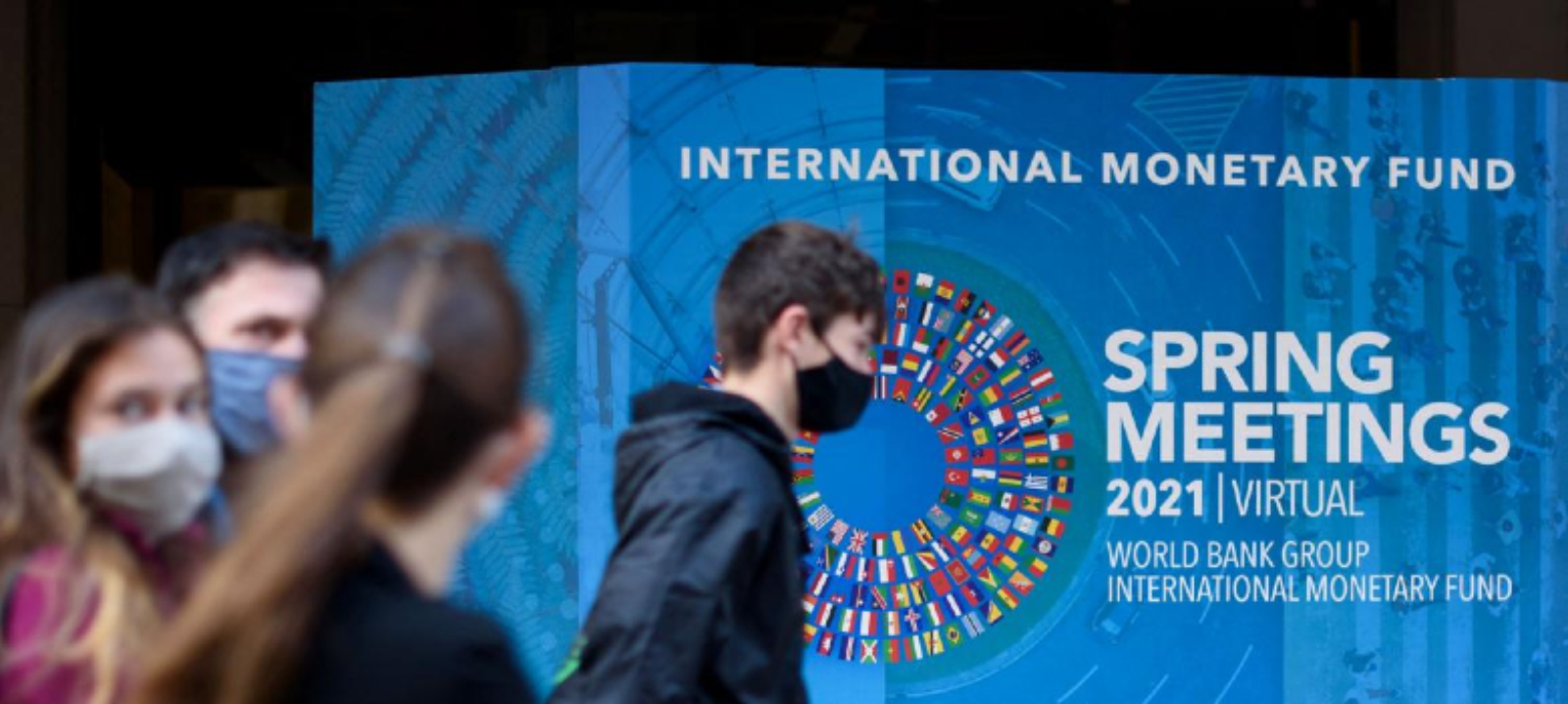Egypt on surer fiscal ground + more debt relief agreed + IMF backs wealth tax

IMF upgrades Egypt budget projections in latest outlook: Egypt’s public finances have withstood the test of covid-19 better than previously thought, new projections released by the IMF indicate. Figures in the Fund’s latest Fiscal Monitor Report (pdf) suggest that the outlook for Egypt’s fiscal position has improved over the past six months, though debt is expected to rise at a quicker pace than before.
The budget deficit is no longer expected to widen this year: The IMF now sees the budget narrowing to 7.3% of GDP by the end of the current fiscal year, compared to 7.9% in FY2019-2020. In October, the Fund expected the deficit to climb to 8.1% of annual output before falling back in FY2021-2022.
But there will be slower progress over the longer term: The deficit is now forecast to shrink to 4.2% of GDP by the middle of the decade, compared to the 3.8% projection the IMF published in October.
The primary surplus will also be bigger than previously thought, coming in at 1% of GDP at the end of the current fiscal year. The IMF previously saw the government generating a slender 0.4% primary balance.
But the debt load is also larger than before: Egypt’s public debt is now projected to reach almost 93% of GDP by the end of the current fiscal year from 90.2% last year. Forecasts in October had projected the country’s debt pile rising from 86.6% of GDP to 90.6% this year. Conversely, the IMF now expects debt-to-GDP to fall at a faster rate in subsequent years, coming in at 73.4% in FY2025-2026 compared to the 77% predicted in October.
Revenues to rise: Revenues will rise to 20.6% of GDP this year from 19.3% in FY2019-2020, and will slowly tick up to reach 21.7% by FY2025-2026.
The Fund is no longer expecting a noticeable cut back in public spending: It now sees spending falling to 26.9% of GDP in FY2021-2022 from 27.9% this year. The IMF in October predicted the expenditure would fall by a more dramatic three percentage points in the coming fiscal year. Finance Minister Mohamed Maait said this week that the ministry would not let up on spending, and pledged to use higher tax revenues to raise wages in the coming fiscal year.
The fiscal report comes a day after the IMF upgraded Egypt’s growth forecasts in its latest World Economic Outlook. The Egyptian economy is now expected to deliver 5.7% growth in FY2021-2022, up two percentage points from the previous forecast in October. On the flipside, the current account will widen to 4% this year before narrowing gradually to 2.5% by the middle of the decade.
Breakthrough on debt relief
Struggling emerging economies are set to receive another lifeline after G20 finance ministers yesterday agreed to boost IMF reserves by USD 650 bn, the group said in a statement yesterday. Ministers also agreed to extend a debt relief moratorium introduced last year by another six months until the end of 2021. The new allocation of special drawing rights — a reserve currency used by the IMF — will enable the international lender to channel more emergency funds to developing nations struggling to cope with the economic costs of covid.
Could debt relief be conditioned on climate policy? The IMF and the World Bank are considering new measures to incentivize developing countries to fund climate projects that could see them being offered debt relief in return, according to Reuters. The institutions are setting up a new platform that will provide advice to low-income nations on implementing climate-friendly policy, and could offer a combination of debt relief and soft loans as incentives.
The International Cooperation Ministry wants to team up with private sector players on sustainable development projects through green finance, International Cooperation Minister Rania Al Mashat said at a webinar during the IMF / World Bank Spring Meetings, which are taking place till Sunday, 11 April, according to a statement. Al Mashat pointed to the importance of private sector inclusion in the state's digital transformation plans, adding that public-private partnerships in this field play an essential role in economic growth.
IMF calls for wealth taxes to pay for covid spending
What times we live in: The IMF has suggested that governments introduce temporary wealth taxes on companies and individuals to redistribute the cost burden of the pandemic and prevent rapidly rising inequality. “To help meet pandemic-related financing needs, policymakers could consider a temporary covid-19 recovery contribution, levied on high incomes or wealth,” the fiscal monitor said.
And now corporates might have to kiss their tax havens goodbye: A US proposal to impose a minimum global corporate tax rate is picking up steam among the world’s biggest economies, in a move that would — if it sees the light — effectively put an end to tax havens. The European Commission backed the proposal to set a 21% base tax rate but wants to ensure that the same rules would apply to US tech giants, which has previously been a sticking point for Washington. Reuters, Bloomberg, and the Financial Times have more.